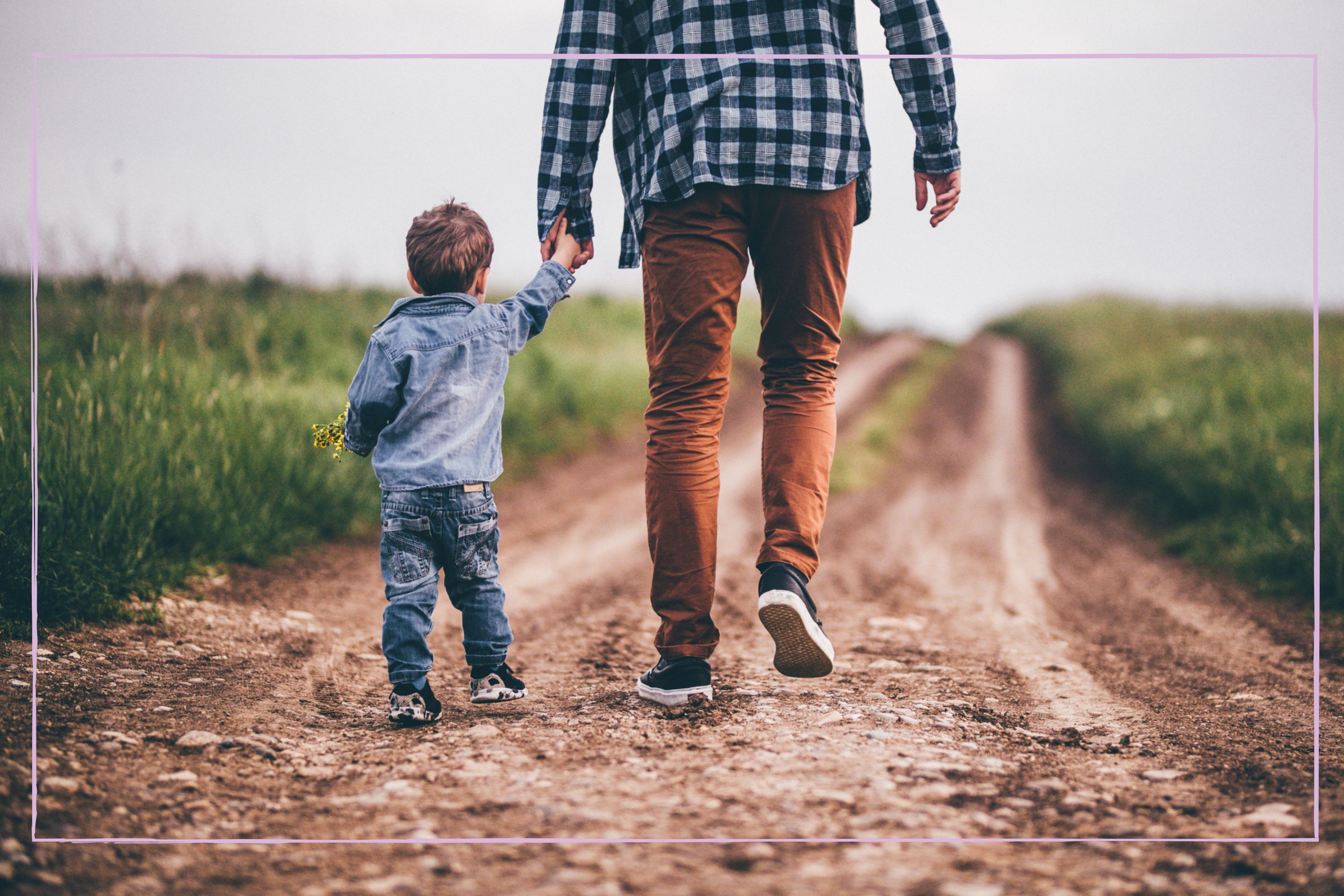Why 'stranger danger' is outdated at best and dangerous at worst (and the new phrase your child needs to understand to stay safe)
Plus three psychologist-backed tips to help keep your kids safe


Parenting advice, hot topics, best buys and family finance tips delivered straight to your inbox.
You are now subscribed
Your newsletter sign-up was successful
Child psychologists urge parents not to teach kids the outdated concept of 'stranger danger,' offering an alternative phrase they need to be aware of to keep kids safe.
Modern life presents many challenges when it comes to potential dangers kids can be exposed to. In a digital age, parents are wondering how to keep kids safe online, increasingly on the lookout for internet safety tips now our existence can feel like it revolves around finding the nearest WIFI. It's not only digital safety parents need to be concerned about, but the age-old concept of those existing in kids' real life spaces who pose a threat - or stranger danger.
From clever hacks to stop kids being abducted to teaching them to identify potentially dangerous people in their lives, child psychologists want parents to refresh the way they approach keeping their kids safe when it comes to strangers. This includes dropping the use of the term 'stranger danger,' which is now deemed to be outdated and even dangerous.
Explaining their stance on the issue, child psychologists Tania Johnson and Tammy Schamuhn suggest the phrase parents should use instead of stranger danger. A video posted to Instagram by the pair, was captioned "Teach your child to be aware of 'Tricky People' not just 'Stranger Danger.'" Expanding on this, the post continued "The old-school concept of Stranger Danger is inaccurate and not helpful in protecting your child. A stranger can be a policeman, but they can be helpful. A Tricky Person can be a stranger or more often it is someone known to the child."
A post shared by Institute of Child Psychology (@instituteofchildpsych)
A photo posted by on
A 'tricky person' is anyone posing a threat to your child's safety. Instead of focusing on these people as being 'strangers,' they can actually be anyone in your child's life displaying alarming behaviours - the key is to teach children what these behaviours are, and how to identify them.
Red flag behaviours usually revolve around exploitation, manipulation, and victimisation. While teaching kids to voice their feelings about alarming behaviours, you might want to describe them as anything that makes them feel 'yucky,' or 'bad inside,' as these terms relate to the vocabulary and feelings children are more likely to have.
Speaking on the video, Tania said "The one thing that we want our children to know, is that they will never, ever be in trouble for coming to talk to us. What we know is that 90% of kids actually know their perpetrators. So, when we say 'stranger danger,' it says to kiddos that all strangers are bad, and everybody we know are good, which doesn't protect them."
Parenting advice, hot topics, best buys and family finance tips delivered straight to your inbox.
The psychologist added "It also creates fear. So what we want to do instead, is start talking to our kids about 'tricky people.'" Tammy then jumped in with "So, let's say we're going to talk to our kids about special alone time, we would say that anytime someone wants you to be alone with them and they insist on mom or dad not being there, that is not a good thing."
3 tips for helping your children stay safe
- Boundaries. Tammy says this means saying to kids "You know, if someone ever comes into your space or touches you, or makes you uncomfortable, or makes you feel scared and it makes you feel embarrassed, you come and tell us."
- Secrets. Kids should be aware that the idea of being asked to keep secrets is a red flag. Tammy adds that children should be told "If anybody asks you to keep a secret, that is not OK."
- Images. Kids should understand that being shown any image they find inappropriate or makes them feel uncomfortable, should be called out. Tammy said to tell your children "If someone ever shows you an image of someone's body, or a naked body, and they tell you not to tell anyone, this is something you need to share with us." This also includes kids being asked if someone can photograph an inappropriate part of their own private anatomy.
Always be clear with your child who is safe to tell, if they feel endangered or witness tricky behaviour. Let your kids know that anything that feels 'wrong' to them is their body's way of protecting them from harm - they need to know they can tell parents about anything that's made them feel uncomfortable, to find out whether it was wrong or not.
Both Tania and Tammy are co-founders of the Institute of Child Psychology, where they share a plethora of resources for helping parents nurture their children. This includes free courses and workshops, along with printables and webinars on a range of subjects that parents might find useful.
For more on keeping children safe, we look at whether TikTok is safe for kids, and just how long it can take children to come across unsafe, age-restricted and illegal content online. If you're worried about screen time, psychologist Dr Becky reveals the top screen time rules she uses with her own kids, and they will be helpful in your own home.

Lucy is a mum-of-two, multi-award nominated writer and blogger with six years’ of experience writing about parenting, family life, and TV. Lucy has contributed content to PopSugar and moms.com. In the last three years, she has transformed her passion for streaming countless hours of television into specialising in entertainment writing. There is now nothing she loves more than watching the best shows on television and sharing why you - and your kids - should watch them.